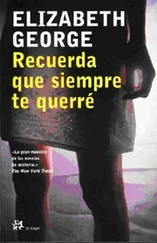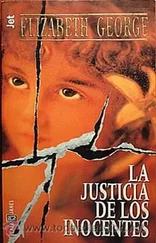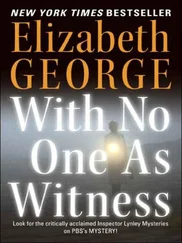Elizabeth George - I, Richard
Здесь есть возможность читать онлайн «Elizabeth George - I, Richard» весь текст электронной книги совершенно бесплатно (целиком полную версию без сокращений). В некоторых случаях можно слушать аудио, скачать через торрент в формате fb2 и присутствует краткое содержание. Жанр: Детектив, на английском языке. Описание произведения, (предисловие) а так же отзывы посетителей доступны на портале библиотеки ЛибКат.
- Название:I, Richard
- Автор:
- Жанр:
- Год:неизвестен
- ISBN:нет данных
- Рейтинг книги:3 / 5. Голосов: 1
-
Избранное:Добавить в избранное
- Отзывы:
-
Ваша оценка:
- 60
- 1
- 2
- 3
- 4
- 5
I, Richard: краткое содержание, описание и аннотация
Предлагаем к чтению аннотацию, описание, краткое содержание или предисловие (зависит от того, что написал сам автор книги «I, Richard»). Если вы не нашли необходимую информацию о книге — напишите в комментариях, мы постараемся отыскать её.
This volume contains three revised versions of Elizabeth George's short stories which were originally published under the title 'The Evidence Exposed'. Here there are also two new stories and an introduction by the author to all five stories of human weakness.
I, Richard — читать онлайн бесплатно полную книгу (весь текст) целиком
Ниже представлен текст книги, разбитый по страницам. Система сохранения места последней прочитанной страницы, позволяет с удобством читать онлайн бесплатно книгу «I, Richard», без необходимости каждый раз заново искать на чём Вы остановились. Поставьте закладку, и сможете в любой момент перейти на страницу, на которой закончили чтение.
Интервал:
Закладка:
Except Willow McKenna, that is. Willow, who lived next door, just wanted good neighbors. At thirty-four and trying to get pregnant with her third of what would ultimately be-some years hence-seven children, Willow hoped merely for a family who shared her values. These were simple enough: a man and a woman committed to their marriage who were loving parents to an assortment of moderately well behaved children. Race, color, creed, national origin, political affiliation, automotive inclination, taste in interior decoration… none of that mattered. She was just hopeful that whoever bought 1420 would be a positive addition to what was, in her case, a blessed life. A solid family represented that, one in which the dad went out to a white collar if not distinguished job, the mom remained at home and saw to the needs of her children, and the children themselves were imaginative but obedient, with evident respect for their elders, happy, and carrying no infectious diseases. The number of children didn't matter. The more the better, as far as Willow was concerned.
Having grown up with no relations of her own but always clinging to the futile hope that one set of foster parents or another would actually want to adopt her, Willow had long made family her priority. When she'd married Scott McKenna, whom she'd known since her sophomore year in high school, Willow had set about making for herself what fate and a mother who'd abandoned her in a grocery store had long denied her. Jasmine came first. Max followed two years later. If all went according to plan, Cooper or Blythe would arrive next. And her own life, which had lately felt dark, cold, and cavernous with Max's entry into kindergarten, would once more stretch and fill and bustle, relieving the nagging press of anxiety that she'd been experiencing for the last three months.
“You could go to work, Will,” her husband Scott had counseled. “Part-time, I mean. If you'd like, that is. No need financially and you'd want to be here when the kids get home from school anyway.”
But a job wasn't what Willow wanted. She wanted the void filled in a way only another baby could fill it.
That was where her inclinations lay: toward family and babies and not toward neighborhoods that might or might not be designated Perfect Places to Live. So when the sold sign appeared over the realtor's name on 1420, what she wondered was not when the new neighbors might logically be expected to make the necessary improvements to their environment-a front yard edged by a new picket fence would be a good place to start, thought the Gilberts who lived on the other side of 1420-but rather how big the family was and would the mom want to exchange any recipes.
Everyone, it turned out, was disappointed. For not only did no instant transformation take place in 1420 Napier Lane, but no family moved a plethora of belongings into the old Victorian house at all. Make no mistake: A plethora of items were delivered. But as for the mom, the dad, the teeming happy shouting children that were meant to accompany those items… They did not materialize. In their place came one lone woman, one lone and-it must be said-rather odd woman.
She was called Anfisa Telyegin, and she was the sort of woman about whom rumors spring up instantly.
First, there was her general appearance, which can largely be described by the single word gray. Gray as to hair, gray as to complexion, gray as to teeth and eyes and lips, gray as to personality as well. She was much like chimney smoke in the dark- definitely present but indecipherable as to its source. Creepy, the youngsters on Napier Lane called her. And it wasn't a leap of too much imagination to expand from that to the less pleasant witch.
Her behavior didn't help matters. She returned neighborly hel-los with the barest courtesy. She never answered her doorbell to children selling Girl Scout cookies, candy, magazines, or wrapping paper. She wasn't interested in joining the Thursday morning mothers' coffee that rotated among the houses of the stay-at-home moms. And-this was perhaps her biggest sin-she showed no inclination to join in a single one of the activities that Napier Lane was certain would help it top the short list of spots designated in East Wingate as models of perfection. So invitations to progressive dinners were ignored. The Fourth of July barbecue might not have occurred at all. Christmas caroling did not see her participate. And as for using part of her yard for the Easter egg hunt… The idea was unthinkable.
Indeed, six months into her acquisition of 1420 Napier Lane, all anyone knew of Anfisa Telyegin was what they heard and what they saw. What they heard was that she taught Russian language and Russian literature at night at the local community college. What they saw was a woman with arthritic hands, a serious and regrettable case of dowager's hump, no interest in fashion, a tendency to talk to herself, and a great passion for her yard.
At least, that was how it seemed at first because no sooner had Anfisa Telyegin removed the for sale sign from the dusty plot that was her front yard but she was out there murmuring to herself as she planted English ivy which she proceeded to fertilize, water, and baby into a growth spurt unparalleled in the history of the lane.
It seemed to people that Anfisa Telyegin's English ivy grew overnight, crawling along the packed earth and sending out tendrils in every direction. Within a month, the shiny leaves were flourishing like mongrel dogs saved from the pound. In five months more, the entire front yard was a veritable lake of greenery.
People thought at this point that she would tackle the picket fence, which sagged like knee-highs on an eighty-year-old. Or perhaps the chimneys, of which there were six and all of them guano streaked and infested with birds. Or even the windows, where the same drunken venetian blinds had covered the glass- without being dusted or changed-for the last fifty years. But instead, she repaired to the backyard, where she planted more ivy, put in a hedge between her property and her neighbors' yards, and built a very large chicken coop into which and out of which she disappeared and emerged at precise intervals morning and night with a basket on her arm. It was filled with corn on the access route. It was empty-or so it seemed to anyone who caught a glimpse of the woman-on the egress.
“What's the old bag doing with all the eggs?” asked Billy Hart who lived across the street and drank far too much beer.
“I haven't seen any eggs,” Leslie Gilbert replied, but she wouldn't have, naturally, because she rarely moved from her sofa to the window during the daytime when the television talk shows were claiming her attention. And she couldn't be expected to see Anfisa Telyegin at night. Not in the dark and between the trees that the woman had planted along the property line just beyond the hedge, trees that like the ivy seemed to grow with preternatural speed.
Soon, the children of Napier Lane were reacting to the solitary woman's strange habits the way children will. The younger ones crossed over to the other side of the street whenever passing 1420. The older ones dared each other to enter the yard and slap hands against the warped screen door that had lost its screen the previous Hallowe'en.
Things might have gotten out of hand at this point had not Anfisa Telyegin herself taken the bull by the horns: She went to the Napier Lane Veterans' Day Chili Cook-off. While it's true that she didn't take any chili with her, it's also true that she did not show up empty-handed. And no matter that Jasmine McKenna found a long gray hair embedded in the lime Jell-O salad with bananas that was Anfisa's contribution to the event. It was the thought that counted-at least to her mother if not to the rest of the neighbors-and that proffered Jell-O encouraged Willow to look with a compassionate eye upon the strange elderly woman from that moment forward.
Читать дальшеИнтервал:
Закладка:
Похожие книги на «I, Richard»
Представляем Вашему вниманию похожие книги на «I, Richard» списком для выбора. Мы отобрали схожую по названию и смыслу литературу в надежде предоставить читателям больше вариантов отыскать новые, интересные, ещё непрочитанные произведения.
Обсуждение, отзывы о книге «I, Richard» и просто собственные мнения читателей. Оставьте ваши комментарии, напишите, что Вы думаете о произведении, его смысле или главных героях. Укажите что конкретно понравилось, а что нет, и почему Вы так считаете.












